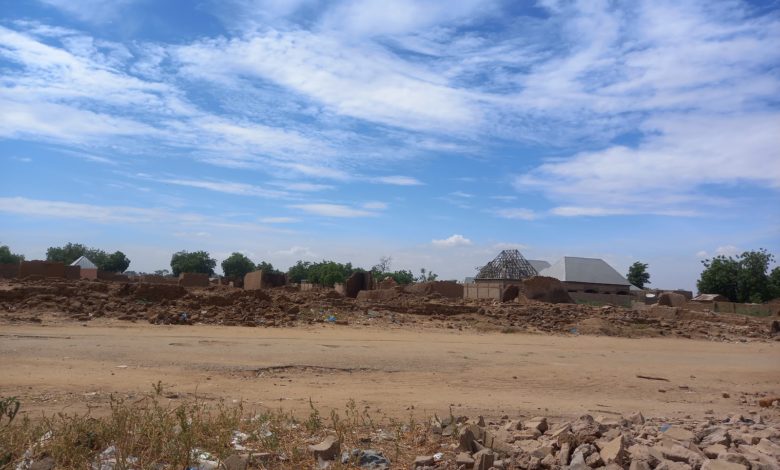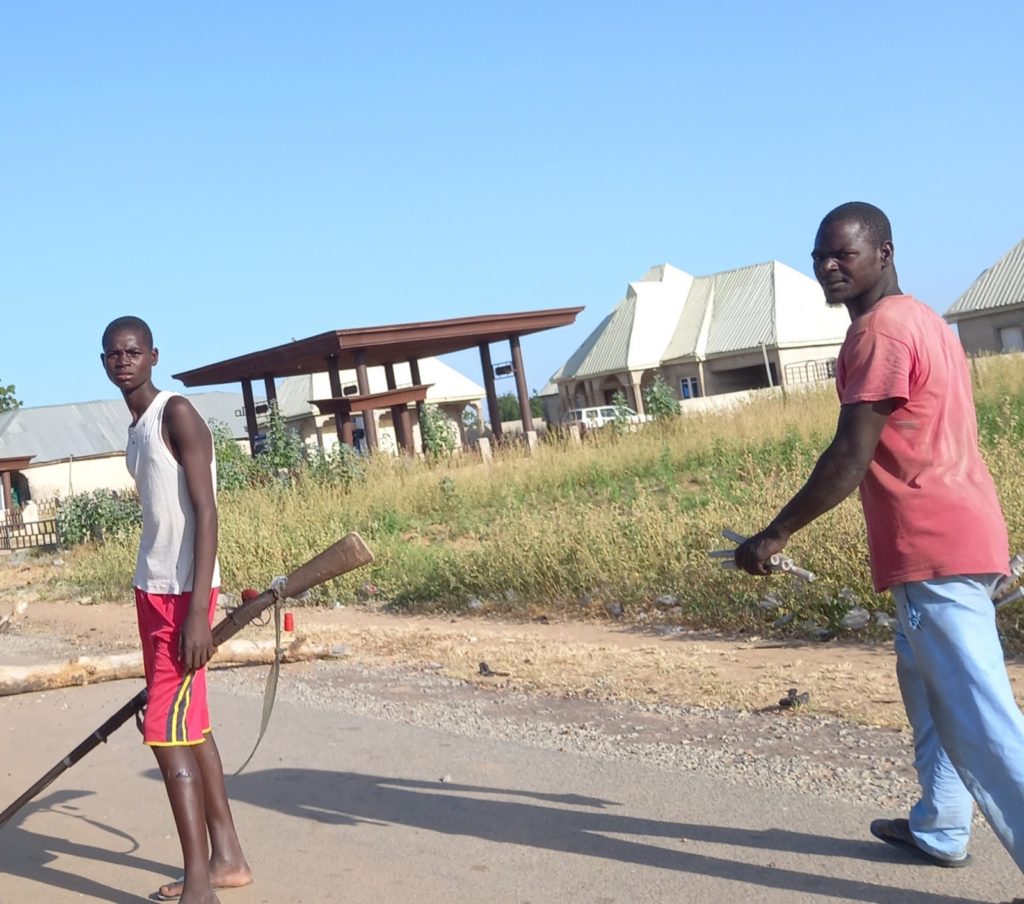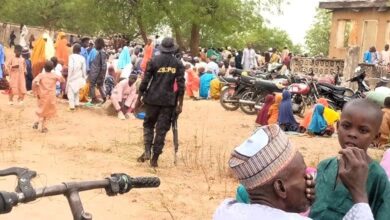
The growing wave of extrajudicial killings of innocent ‘Fulanis’ across Nigeria’s Northwest, based on ethnic profiling of the decade-old crisis in the region by non-state security operatives could be fueling the intractable security problems bedeviling the country.
Late Sept. 2021, an outlawed Hausa vigilante otherwise known as Yan Sakai, from Goronyo, stormed Mamande village in Gwadabawa Local Government Area (LGA) in Sokoto State, killing 11 Fulanis whom they accused of involvement in ‘banditry.’
One of the victims was an Imam leading a daily prayer in one of the mosques in Salame, when he was struck by the outlawed group. His only offence was that “he belonged to the Fulani tribe – an ethnic group widely sprawled across the Sahel and West African sub-region.”
It was the same story for Aliyu Dareta, a Fulani leader in Anka, Zamfara, Northwest Nigeria. Dareta was killed when a Hausa local vigilante invaded the community, slaughtering innocent citizens whom they accused of being informants to ‘bandits.’
Responding to the extrajudicial killings of Fulanis in Gwadabawa, Bello Turji, a terror kingpin operating in the eastern part of Sokoto, led a reprisal attack, killing over 60 people in Goronyo, to avenge their deaths.
Security analysts are quick to warn that this trend signals a new wave of a tit-for-tat conflict in the state – one that shares semblance with how rural banditry re-emerged in Zamfara as a communal rivalry between the nomadic Fulani herders and sedentary Hausa farmers in 2011 before morphing into a quagmire threatening the region.
As of 2021, over 120 gangs operate across six states, namely Zamfara, Sokoto, Kebbi, Kaduna, Katsina and Niger states.
The genesis
Although there are varying narratives responsible for the escalation of the conflict in the region, one of the accounts is the grievances arising from a perceived deep-rooted injustice meted against pastoral communities which resulted in the floating of an armed group – ‘Kungiyar Gayu.
The group was established by Kundu and the notorious Buharin Daji, both of Fulani background, towards the end of 2011. Members of the gang considered it a pro-fulani group aimed at liberating them from the high-handedness of security agents, traditional rulers, and politicians.
It was formed at a point when herders in Zamfara were migrating to neighbouring states, due to large-scale encroachment amid shrinking grazing areas.
“Everyone knows we are herders. This country is blessed with oil and other natural resources but that bounty doesn’t filter down,” Shehu Rekep, a notorious terror kingpin and gun-runner, told VOA. “We have not been educated, we don’t have security, and the government is not doing anything for us. We are being killed, but we are always reported as the killers.”
But the activities of non-state security operatives such as the Vigilante Group of Nigeria (VGN), Yan-Banga, and Yan Sakai contributed adversely to the degeneration of the conflict that has killed at least 8,000 people and displaced hundreds of thousands since 2011.
These vigilante groups attacked, maimed and extrajudicially killed members of the gangs, forcing them to regroup in forests where they set up camps to unleash mayhem on vulnerable rural communities.
“The creation of Yan Sakai specifically worsened the situation. They killed and maimed members of the gangs without recourse to the law,” Dr Muritala Rufai, a lecturer at Usmanu Danfodiyo University, Sokoto, said.
The first incident that changed the pattern of the operations of these armed groups was the brutal killing of one Alhaji Ishe, in Chilin, Dan-Sadau Emirate, Maru LGA of Zamfara State in 2012.
Ishe, the head of one of the oldest Fulani clans in the Emirate, was accused of harbouring criminals and rustlers. His public murder inflamed the smouldering smoke of the conflict, HumAngle learnt.
The terror groups used his murder as justification for the reprisal and mass killings in the region. They acquired more sophisticated weapons and became deadlier than ever across Zamfara, Sokoto, Katsina, and Kaduna states.
“Following his death, members of the gang multiplied in number, strength, power and weapons and even connections in 2013. It also became more heterogeneous and transnational in 2016, constituting members from Niger Republic, Mali and Chad, mostly Tauregs with links to Sahellian rebels,” Dr. Rufa’i, added.
Recycling old wounds
Just as the activities of these non-state security operatives boomeranged the security situation in Zamfara a decade ago, analysts argue that their mode of operation in Sokoto State could backtrack the success recorded over time, especially as more terror-leaders shifted their base to the state.
The state currently plays host to terrorists – Bello Turji, Halilu Sububu (popularly known as Halilu Rockets), and Shehu Rekep, a notorious gun-runner.
These informal security operatives, notwithstanding, also provide alibi for terrorists to continue their reign of violence while appealing to their kin who are being killed extrajudicially across the region.
Dr Rufa’i told HumAngle that the activities of the Yan Sakai group is fast reuniting terrorists who were hitherto irreconcilable in the region. He explained that they now have a common enemy in the group, which was initially the root of the carnage sweeping through the region.
“Now there is a raging anti-fulani sentiment growing rapidly in the region. This is why the Yan Sakai doesn’t care to differentiate between who is a bandit and who is not within the Fulanis. Whoever comes their way, they consider him as a bandit,” he stated, noting that the arming of the non-state security operatives is rather increasing the conflict as more terror leaders shed their differences.
“Halilu (Sububu) and Rekep (Shehu) are friends, but they don’t relate with (Bello) Turji. Dan Karemi and Turji are the worst enemies alive. But with the arming of the Yan Sakai, they now have a common enemy, and uniting their forces. And that explains the reasons for the Goronyo attack. There are a lot of killings of innocent Fulanis taking place in the state. So, we’re unarguably going back to square zero.”
Two days after HumAngle’s interview with Dr Rufai, Shehu Rekep who barely related with Bello Turji came out to explain the situation surrounding the horrendous Goronyo attack carried out by Turji.

“We heard those who attacked Goronyo being described as criminals. They were not. The president (Muhammadu Buhari) came out to say so. Those people (of Goronyo) have killed so many people, so they would have to be attacked and killed,” Rekep said, justifying the brutal killings at the central market.
Although the governor of Sokoto had earlier banned the activities of the poorly trained Yan Sakai group in the state, they continue with their operations, citing the inadequacy of security agencies and a number of other factors as the reason they defend their communities.
Even at that, the indifference of the state, despite the group’s notoriety and clear disregard to the law would keep deteriorating the security of the border state, Dr Rufai submitted.
What’s good for the goose…
With things getting ugly between the local vigilante (Yan Sakai) and the marauding terrorists, Yusuf Anka believes the authorities need to tighten their grip on the trend before it spirals into a full-blown ethnic crisis. The security analyst said, “the government should take charge of the situation. Fight the bandits and the criminal vigilante so that normalcy can be restored. The bandits would say they’re fighting because they want to protect their wives and children.”
“The local vigilante would equally want to protect their people. The state cannot be arresting the vigilante groups when their homes are being invaded and burnt down by Fulani bandits. Unless the state protects everyone, this would continue to fuel the crisis,” he said.
A security source familiar with the situation in the part of the state told HumAngle, “as long as these people are given the power and also the chance by the state to own locally-made guns and kill innocent citizens, we’ll remain in a cycle of violence. And this cycle of violence will actually remain the way it is until the government is serious about addressing it.”
Support Our Journalism
There are millions of ordinary people affected by conflict in Africa whose stories are missing in the mainstream media. HumAngle is determined to tell those challenging and under-reported stories, hoping that the people impacted by these conflicts will find the safety and security they deserve.
To ensure that we continue to provide public service coverage, we have a small favour to ask you. We want you to be part of our journalistic endeavour by contributing a token to us.
Your donation will further promote a robust, free, and independent media.
Donate Here




